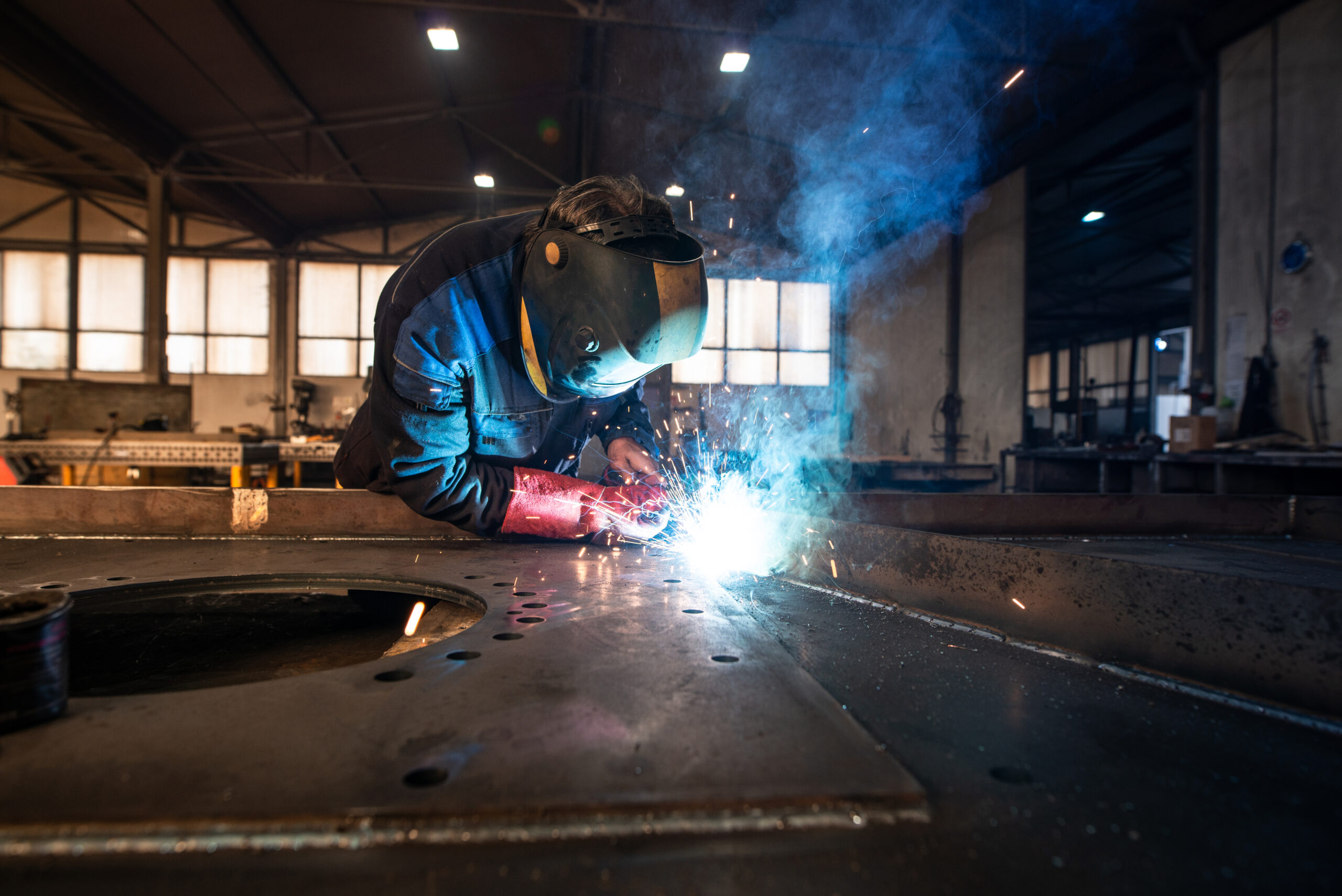Choosing the right zipper for industrial applications isn’t just about finding a component that opens and closes. It’s an engineering decision that affects user safety, equipment durability, and a brand’s reputation across demanding sectors like marine, PPE, modular structures, and outdoor enclosures. For OEM engineers, designers, and manufacturers, the challenge lies in matching zipper performance to environmental stress, load requirements, and long-term reliability.
When failure isn’t an option—from firefighter gear to field equipment—zippers must be designed, sourced, and tested with precision. That’s why LenZip, a leader in U.S.-made industrial zippers, has set the standard for customizable, heavy-duty fastening solutions since 1946.
What Makes an Industrial Zipper Different
Industrial zippers are built to perform under extremes where standard apparel zippers fail. They must endure high tension, repetitive cycling, and harsh exposure to chemicals, salt, or UV rays. A zipper for a firefighter suit or marine cover isn’t decorative—it’s a functional component that bears structural loads and environmental stress.
For oversized applications like emergency gear bags or modular shelters, #10 or #12 heavy-duty zippers (10–12 mm teeth width) are common, providing maximum resistance to strain and deformation. Every industrial zipper from LenZip is tested for tensile strength, corrosion resistance, and fatigue under ASTM D2061 standards. These evaluations simulate years of wear, proving that performance doesn’t fade after thousands of open-close cycles.
Meeting ASTM, NFPA, and MIL-SPEC standards is non-negotiable for industrial sectors. PPE zippers, for example, must endure high heat and repeated use, while marine-grade zippers demand corrosion-proof coatings. These aren’t small technical details—they’re life-critical specifications. Learn more about global zipper performance standards at ASTM International.
Industrial zippers also serve a structural role in large-scale enclosures, such as modular military tents or environmental curtains. LenZip engineers these systems to maintain environmental seals, support fabric tension, and enable rapid field assembly, ensuring reliability where downtime isn’t acceptable.

Choosing the Right Material for Performance
A zipper’s material determines its strength, flexibility, and resistance to the elements. Industrial applications typically rely on nylon, polyester, or polypropylene, each with unique advantages.
Nylon is the strongest and most elastic option (up to 7,000 lbs/in tensile strength). It’s ideal for heavy machinery covers and PPE gear that endure frequent stress. However, nylon absorbs water and has limited UV resistance, so coatings are often added for marine or outdoor use.
Polyester offers excellent UV and chemical resistance, making it ideal for outdoor enclosures, tents, and marine-grade products. With strength nearly equal to nylon (6,000 lbs/in) but minimal water absorption, it’s a favorite for long-term exposure to sun and moisture. LenZip’s polyester zippers are optimized for precisely these demanding environments.
Polypropylene is the lightest, most buoyant, and fully water-resistant choice, perfect for marine and temporary outdoor setups. Though its tensile strength (1,200–1,800 lbs/in) is lower, its unmatched weatherproofing and UV endurance make it ideal for flotation devices and modular structures.
Beyond raw materials, zipper coatings and finishes dictate long-term durability. LenZip uses corrosion-resistant coatings—like electroplating and polymer finishes—that exceed ASTM fatigue thresholds. These are crucial for marine zippers, industrial tarps, and chemical suits that face constant exposure. Learn more about coatings in Zipper Materials & Finishes.
Even the tape matters. Flame-resistant and UV-stabilized tapes are essential for PPE and outdoor gear, while high-tenacity fibers improve fatigue life in industrial curtains. Textile World frequently reports on advanced fibers supporting industrial applications like these.
Understanding Zipper Gauge and Size
The zipper gauge—the width of its teeth when closed—directly impacts strength and flexibility.
- #5 or smaller: Suited to light or decorative applications.
- #8 gauge: Balanced flexibility and strength for gear pouches or tarps.
- #10 gauge: The industrial standard for rugged use, found in tents and outdoor gear.
- #12 or above: Heavy-duty structural applications like modular walls or containment barriers.
See LenZip’s zipper gauge chart for technical sizing data. Underspecifying gauge size leads to premature failure, while overspecifying adds weight and stiffness. LenZip’s cut-to-length zippers allow manufacturers to fine-tune specifications for ideal performance.
Teeth, Tape, and Slider Options
Zipper performance depends on how its components are paired. Coil zippers made from nylon or polyester provide smooth, flexible operation for curved installations like PPE suits or industrial curtains. Molded-tooth zippers are designed for marine and outdoor environments, where corrosion resistance and strength matter most. Metal zippers, typically brass or steel, deliver the highest tensile strength and are indispensable in flame- or abrasion-heavy industries.
Sliders and tapes are equally critical. Industrial settings benefit from locking sliders and large pull tabs suited to gloved hands. Using a lightweight, apparel-grade slider in outdoor or PPE gear drastically shortens product lifespan. For detailed compatibility guidance, see LenZip’s Guide to Zipper Teeth, Sliders, and Their Parts.
Tape composition influences long-term performance. LenZip’s coverall zippers use flame-retardant, abrasion-resistant tapes engineered for hundreds of wash and wear cycles, maintaining both safety and usability in harsh conditions.

Common Mistakes in Industrial Zipper Selection
Specifying zippers incorrectly can cause costly product failures and downtime. The most common mistakes include underspecifying gauge size, skipping corrosion-resistant finishes, or pairing the wrong slider type with industrial tape. Another frequent oversight is neglecting compliance testing—such as ASTM zipper testing—which ensures field reliability and regulatory approval. Partnering with experienced U.S. manufacturers like LenZip helps eliminate these risks through proper testing, specification, and engineering support.
Testing and Quality Standards
Every heavy-duty zipper must prove itself through rigorous testing. LenZip performs ASTM, NFPA, and MIL-SPEC evaluations in-house, ensuring full traceability and consistent quality.
Under ASTM D2061, zippers are tested for tensile strength, fatigue, abrasion, and corrosion. NFPA 2112 assesses flame resistance for PPE, while MIL-SPEC standards measure performance under saltwater, cold, and chemical exposure. These tests ensure that zippers meet industrial benchmarks before ever reaching a customer.
When products are expected to survive high temperatures, salt spray, or repetitive motion, this data becomes the backbone of reliability. By maintaining control of testing, LenZip guarantees consistent zipper performance for every batch produced.
Why Choose a U.S.-Based Zipper Manufacturer
Working with a domestic supplier like LenZip provides distinct advantages that global sourcing can’t match:
- Reliable supply chains: Predictable lead times and no overseas shipping delays.
- Quality control: Complete visibility over every stage of production and testing.
- Faster customization: Local prototyping and flexible minimums for OEM projects.
- Regulatory compliance: Built to ASTM, NFPA, and MIL-SPEC standards.
- Sustainability: Shorter shipping routes and lower carbon impact.
See Why U.S. Zipper Manufacturing Matters for Supply Chain Stability for a full look at the strategic advantages of American-made zippers. When your project demands precision, request a quote through LenZip’s engineering team. For context on domestic manufacturing growth, visit ThomasNet.
Closing Thoughts
Selecting the right industrial zipper isn’t a small detail—it’s a long-term design decision that directly affects safety, reliability, and brand trust. LenZip’s U.S.-made industrial zippers combine material science, controlled testing, and customization for superior results across marine, modular, and PPE applications. When the integrity of your product depends on the quality of its closure, choosing the right zipper is choosing performance that lasts.
Learn more about ASTM zipper testing standards at ASTM International.
FAQ
What is the strongest type of zipper for industrial use?
Metal-tooth zippers in #10–#12 gauge deliver the highest tensile strength. For marine or chemical environments, heavy-duty molded plastics often outperform metal due to corrosion resistance.
Are water-resistant zippers necessary in industrial applications?
Yes. Water-resistant designs are vital anywhere water or chemical ingress could damage equipment or compromise safety. LenZip manufactures sealed and coated zippers ideal for these environments.
How are industrial zippers tested for durability?
Testing includes ASTM D2061 for tensile and fatigue strength, NFPA 2112 for flame resistance, and MIL-SPEC environmental testing. LenZip performs these evaluations internally for precision and reliability.
Can industrial zippers be customized for small runs?
Absolutely. LenZip offers short-run, cut-to-length, and specialty zippers for prototyping or limited production.
Why choose a U.S.-made zipper manufacturer like LenZip?
Domestic production means faster response, traceable materials, and superior quality control. LenZip ensures every zipper meets the highest American manufacturing standards.
